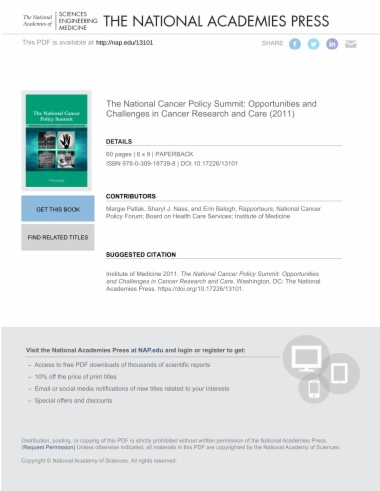

Many ongoing changes are likely to have an impact on cancer research and care. For example, technological advances are rapidly changing the way cancer research is conducted, and the recently passed healthcare reform legislation has many implications for cancer care. Technological advances are altering the way cancer research is conducted and cancer care is delivered, and the recently passed healthcare reform legislation has many implications for cancer care. There is a growing emphasis on molecularly targeted therapies, information technology (IT), and patient-centered care, and clinical cancer research has become a global endeavor. At the same time, there are concerns about shrinking research budgets and escalating costs of cancer care.
Considering such changes, the National Cancer Policy Forum (NCPF) of the Institute of Medicine held a National Cancer Policy Summit on October 25, 2010. The Summit convened key leaders in the cancer community to identify and discuss the most pressing policy issues in cancer research and cancer care. The National Cancer Policy Summit: Opportunities and Challenges in Cancer Research and Care is a summary of the summit. The report explores policy issues related to cancer research, the implementation of healthcare reform, delivery of cancer care, and cancer control and public health needs. Expert participants suggested many potential actions to provide patient-centered cancer care, to foster more collaboration, and to achieve other goals to improve research and care.